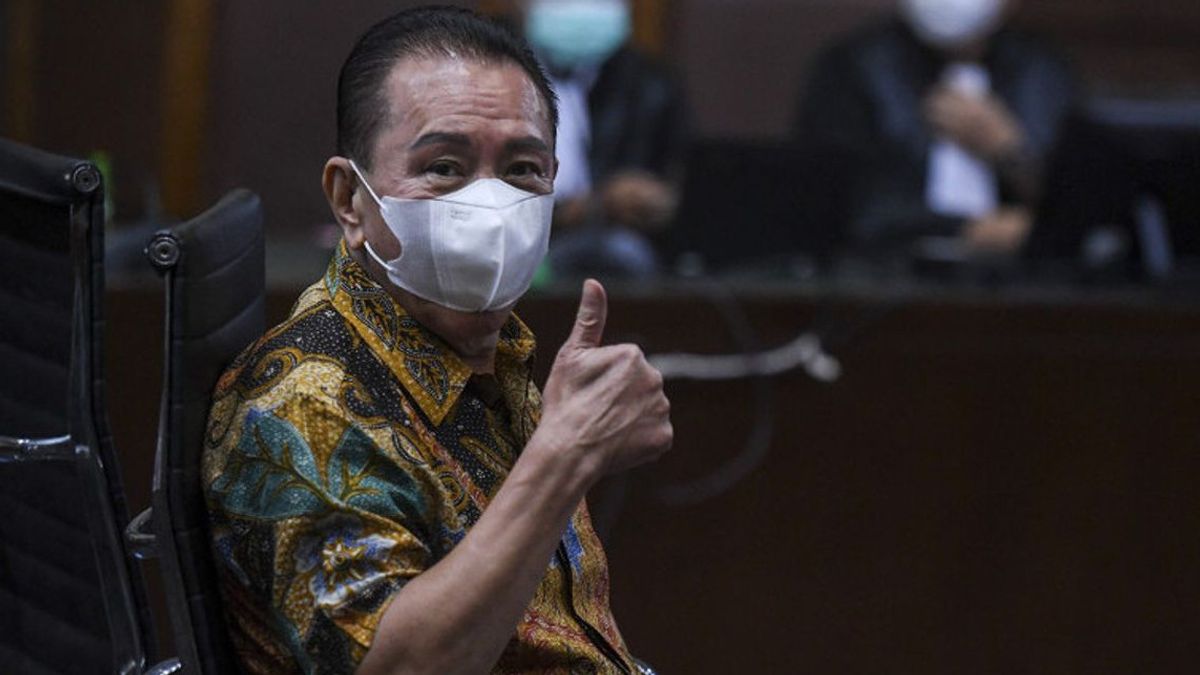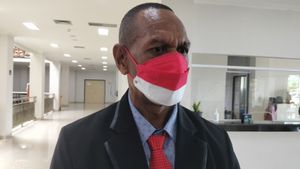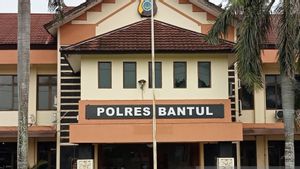JAKARTA - Indonesia Corruption Watch (ICW) said that the granting of remissions or reductions in the detention period of Joko Tjandra, a convict in the bribery case for administering the Supreme Court's fatwa and the abolition of the red notice seemed odd. Moreover, he had been on the run for a dozen years before he was finally arrested.
"This is strange because how can a fugitive who has been on the run for a dozen years be given access to a reduced sentence," ICW researcher Kurnia Ramadhana told reporters quoted on Sunday, August 22.
Kurnia said that granting remissions to prisoners like Joko Tjandra could not only be measured because he had only served a third of his sentence.
In providing a deduction for the detention period, he continued, the Ministry of Law and Human Rights should consider a number of aspects. Including, Joko's behavior after running away for a dozen months.
"Is someone who runs away while serving a sentence is considered good behavior by the Ministry of Law and Human Rights," Kurnia asked.
SEE ALSO:
Furthermore, the granting of remissions to a number of other convicts, such as the former Deputy Chairman of Commission VII of the DPR, Eni Maulani Saragih, who was a convict of the Riau-1 PLTU bribery case and the convict of the Supreme Court's fatwa bribery (MA), Andi Irfan Jaya, was also flouted by ICW.
Kurnia questioned the basis for granting remission in the form of cutting the prison term, considering that both of them were not justice collaborators.
"Meanwhile, the requirements for getting remission for convicted corruption convicts as regulated in Article 34A Paragraph 1 of Government Regulation Number 99 of 2012 are those who have the status as justice collaborators," he said.
As previously reported, Head of the Public Relations and Protocol Section of the Ditjenpas Kemenkumham Rika Aprianti said Joko Tjandra received remission on Indonesian Independence Day because he had already served a third of his sentence.
In addition, if referring to Article 34 paragraph (3) of Government Regulation Number 28 of 2006 it states that convicts of criminal acts of terrorism, narcotics, and psychotropics, corruption, crimes against state security, and serious human rights crimes, as well as other transnational organized crimes, can be given remission. Provided, they have met the requirements of good behavior.
Thus, the Ministry of Law and Human Rights stated that Joko had the right to get remission or a reduction in his sentence of two months in accordance with applicable laws and regulations.
The English, Chinese, Japanese, Arabic, and French versions are automatically generated by the AI. So there may still be inaccuracies in translating, please always see Indonesian as our main language. (system supported by DigitalSiber.id)


















